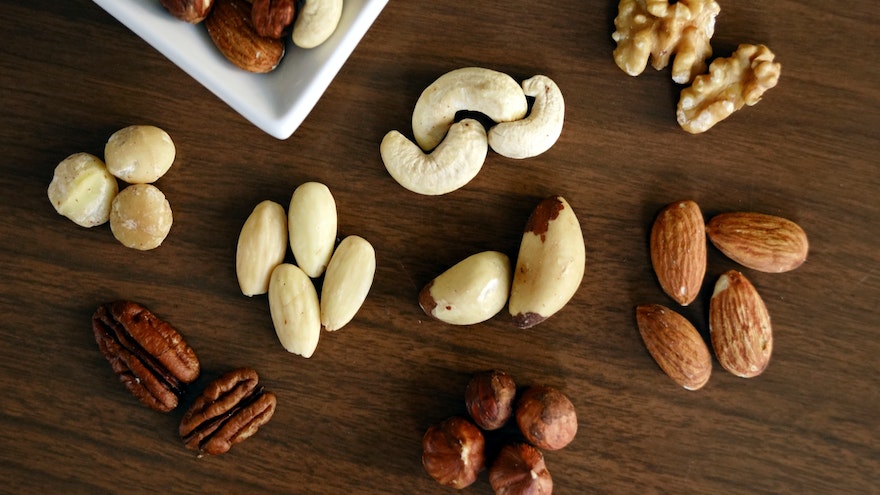If you’re struggling with digestive issues, you may have heard of leaky gut syndrome. This condition occurs when the lining of the intestines becomes damaged and allows undigested food particles, bacteria, and toxins to pass through the intestinal wall and into the bloodstream. This can lead to a range of symptoms, including bloating, abdominal pain, and skin irritation.
Fortunately, there are many foods that can help heal leaky gut and improve your overall digestive health. In this article, we’ll explore some of the best foods to add to your diet to help support a healthy gut lining.
“Fiber-Rich Foods”
One of the most important things you can do to support a healthy gut is to consume a diet rich in fiber. Fiber helps to bulk up the stool, which can help to reduce constipation and improve overall bowel regularity. It also helps to feed the good bacteria in the gut, which are essential for maintaining a healthy balance of microbes in the intestine.
Some excellent sources of fiber include fruits, vegetables, legumes, and whole grains. Some specific examples include:
- Apples: These tasty fruits are a great source of both soluble and insoluble fiber, which can help to support a healthy gut.
- Berries: Many types of berries, such as raspberries, blackberries, and blueberries, are high in fiber and also contain antioxidants that can help to reduce inflammation in the body.
- Legumes: Beans, lentils, and chickpeas are all excellent sources of fiber, as well as protein and other important nutrients.
- Whole grains: Oats, quinoa, and brown rice are all high in fiber and can help to support a healthy gut.
Incorporating these fiber-rich foods into your diet can help to support a healthy gut and improve your overall digestive health.
“Fermented Foods”
Fermented foods, such as sauerkraut, kimchi, and yogurt, are also great for supporting a healthy gut. These foods contain live cultures of beneficial bacteria, which can help to support a healthy balance of microbes in the intestine. They may also help to reduce inflammation in the body and improve immune function.
Some other fermented foods to consider adding to your diet include:
- Kombucha: This fermented tea is made from a combination of tea, sugar, and a symbiotic culture of bacteria and yeast. It has a slightly sour and fizzy flavor and is rich in probiotics.
- Miso: This fermented soybean paste is a staple in Japanese cuisine and is often used to make soup. It’s high in probiotics and may help to reduce inflammation in the body.
- Tempeh: This fermented soybean product is a popular meat alternative and is high in protein and probiotics.
Incorporating fermented foods into your diet can help to support a healthy gut and improve your overall digestive health.
“Bone Broth”
Bone broth is another food that can be beneficial for healing leaky gut. This nutrient-rich broth is made by simmering bones and connective tissue for an extended period of time, which helps to extract the collagen and other nutrients. It’s high in protein, minerals, and amino acids, and may help to support a healthy gut lining.
Some of the potential benefits of bone broth for leaky gut include:
- Improving gut lining integrity: The collagen in bone broth may help to support a healthy gut lining and reduce inflammation in the intestine.
- Reducing inflammation: The amino acids in bone broth, such as glutamine and arginine, may help to reduce inflammation in the body and improve gut health. These amino acids are important for maintaining the integrity of the gut lining and can help to reduce the symptoms of leaky gut.
“Healthy Fats”
Including healthy fats in your diet is also important for supporting a healthy gut. These fats, such as olive oil and avocado, can help to reduce inflammation in the body and improve the integrity of the gut lining.
Some other sources of healthy fats to consider adding to your diet include:

- Nuts and seeds: Almonds, chia seeds, and flaxseeds are all high in healthy fats and can help to support a healthy gut.
- Coconut oil: This oil is rich in medium-chain triglycerides, which can help to reduce inflammation in the body and improve gut health.
- Fish: Fish, such as salmon and sardines, are high in omega-3 fatty acids, which can help to reduce inflammation in the body.
Incorporating healthy fats into your diet can help to support a healthy gut and improve your overall digestive health.
“Herbs and Spices”
Herbs and spices can also be beneficial for supporting a healthy gut. Some examples include:
- Turmeric: This spice is high in curcumin, which has anti-inflammatory properties and may help to support a healthy gut.
- Ginger: This herb is often used to help alleviate digestive issues and may help to reduce inflammation in the body.
- Licorice root: This herb is often used to treat digestive issues and may help to support a healthy gut lining.
Incorporating these herbs and spices into your diet can help to support a healthy gut and improve your overall digestive health.
By incorporating these foods into your diet, you can help to support a healthy gut and improve your overall digestive health. If you’re looking for more information on how to support a healthy gut, be sure to download our free gut health guide.
Additionally, if you’re interested in trying a convenient and delicious way to get all the nutrients your gut needs, be sure to try a free 3-day supply of our probiotic green juice called Life Greens.


